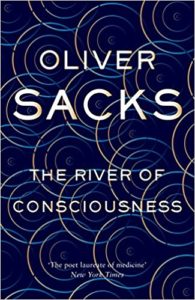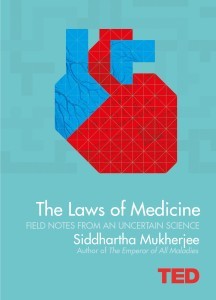Oliver Sacks’s “The River of Consciousness”
 Sometimes it is impossible to “review” a book except to say “Read it”. Oliver Sacks The River of Consciousness is a fine example of this. It is a collection of his essays on diverse topics but with one objective — how does the brain work? How does it process? How does it affect memories? What is true and what is false? What is a figment of our imagination? What does science reveal? This is precisely the
Sometimes it is impossible to “review” a book except to say “Read it”. Oliver Sacks The River of Consciousness is a fine example of this. It is a collection of his essays on diverse topics but with one objective — how does the brain work? How does it process? How does it affect memories? What is true and what is false? What is a figment of our imagination? What does science reveal? This is precisely the  fundamental argument Siddharth Mukherjee makes in his Laws of Medicine TED talk. Irrespective of all the advancements in technology, it is the brain which remains the most important for the speed at which it analyses and processes information, constantly pushing known boundaries to discover new frontiers of knowledge that are so far unimaginable.
fundamental argument Siddharth Mukherjee makes in his Laws of Medicine TED talk. Irrespective of all the advancements in technology, it is the brain which remains the most important for the speed at which it analyses and processes information, constantly pushing known boundaries to discover new frontiers of knowledge that are so far unimaginable.
The River of Consciousness is a posthumous publication but in it is much food for thought. Whether it is discussing creative energies to how the brain works while analysing information as in the case of Charles Darwin or even how do children learn and process information are fascinating points to ponder upon. For instance Prof. Sacks says “Children have an elemental hunger for knowledge and understanding, for mental food and stimulation. They do not need to be told or ‘motivated’ to explore or play, for play, like all creative or proto-creative activities, is deeply pleasurable in itself.”
The River of Consciousness is an excellent book to possess and to return to often too.
To buy The River of Consciousness ( On Kindle ; Paperback ; Hardcover)
14 August 2018
